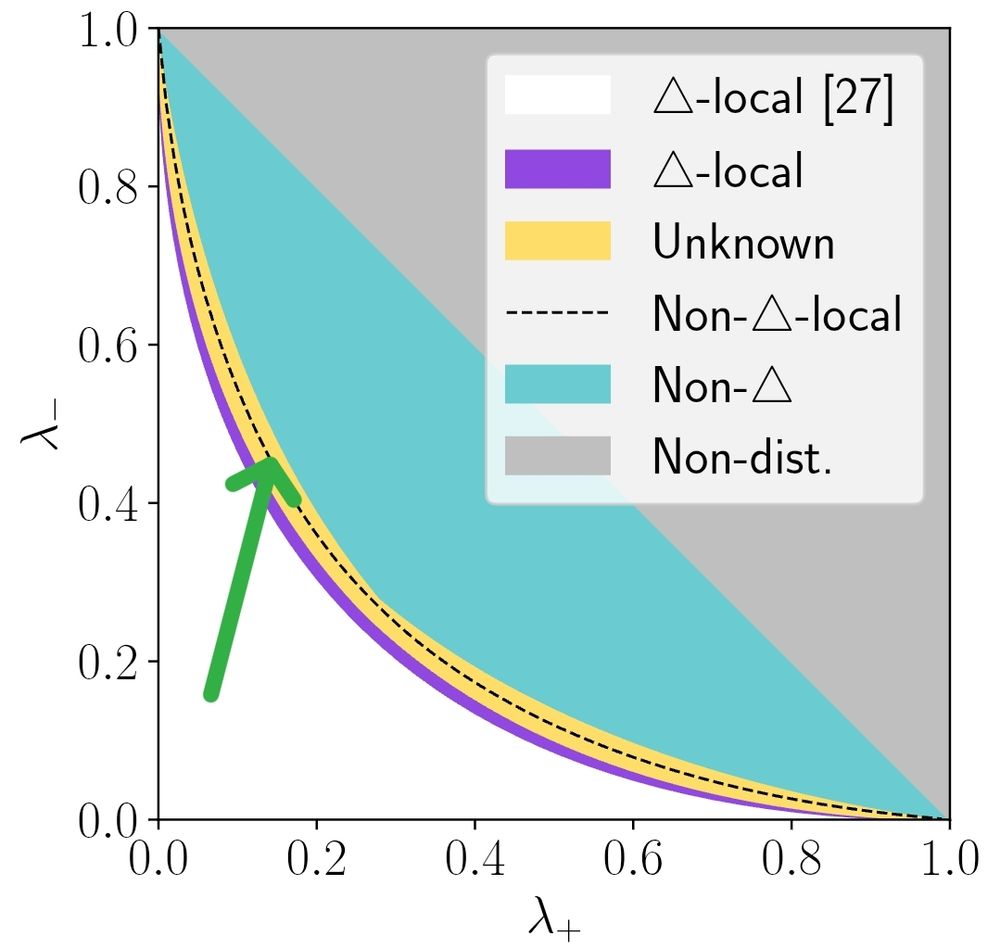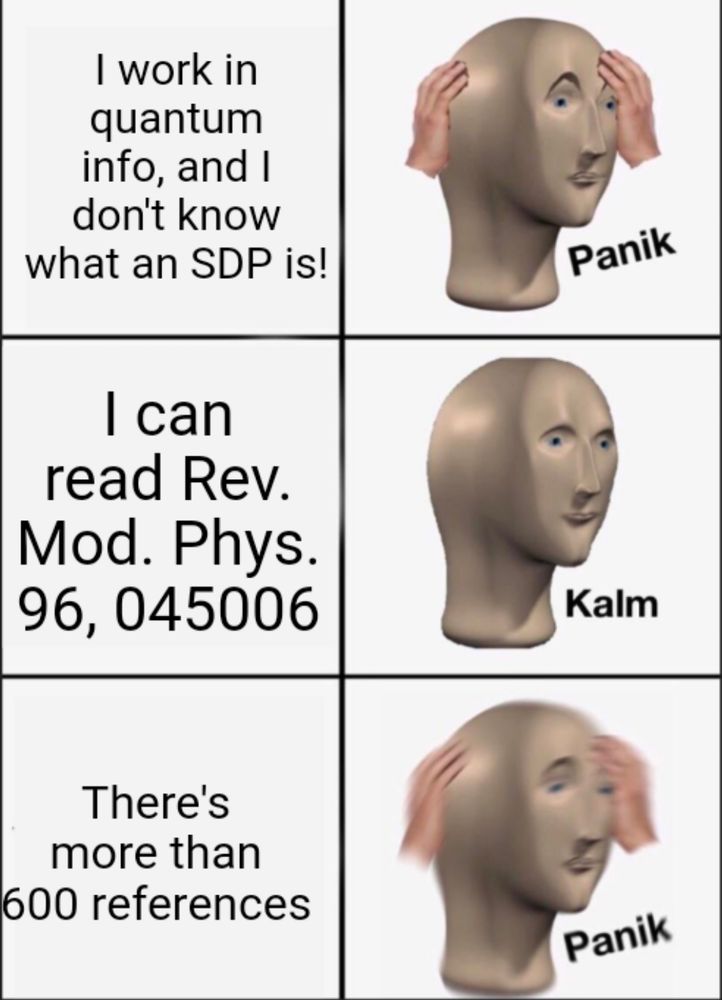










What does this tell us about quantum advantage?

What does this tell us about quantum advantage?
In one meme for @dulwichquantum.bsky.social, this was (kind of) it

In one meme for @dulwichquantum.bsky.social, this was (kind of) it
Is there any hope that we observe a quantum advantage here?

Is there any hope that we observe a quantum advantage here?
www.scirate.com/arxiv/2503.16654
We've computed all the tripartite probability distributions over binary events that 1) are invariant under permutation of parties, and 2) can be created in the triangle network within classical physics
Why should we care about this? Read on! 🧵

www.scirate.com/arxiv/2503.16654
We've computed all the tripartite probability distributions over binary events that 1) are invariant under permutation of parties, and 2) can be created in the triangle network within classical physics
Why should we care about this? Read on! 🧵


7/n

7/n
journals.aps.org/rmp/abstract...

journals.aps.org/rmp/abstract...


